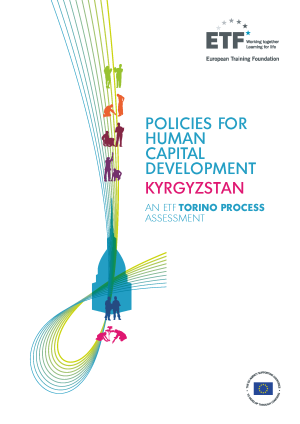This European Training Foundation (ETF) assessment provides an external, forward-looking analysis of the country's human capital development issues and VET policy responses from a lifelong learning perspective. It is based on evidence contained in Kyrgyzstan's Torino Process national report, which was compiled in 2019 using a standardised questionnaire (the National Reporting Framework – NRF) and additional information sources, including international analyses.
The report comes at the right time. It provides seven hands-on recommendations that can assist national authorities with the prioritisation of policy actions following the endorsement by the Kyrgyz government of a new development model that emphasises human capital in relation to economic well-being and the quality of the environment. The new model, which is to be mirrored in education and training policies, will have medium- and long-term goals that are yet to be fleshed out.
While the National Development Strategy for 2040 provides a new framework and opportunity to boost human capital development in the country, its implementation will be affected by the COVID-19 pandemic for the foreseeable future. The COVID-19 crisis is not only placing urgent demands on Kyrgyzstan's education and training system to undertake massive efforts in order to make the transition towards distance education, but it is also affecting society and the economy as a whole far beyond its medical and educational aspects. The COVID crisis has an impact on employment opportunities, migration and trade, and thus has a negative impact on tax revenues too. It has therefore become even more important to prioritise policy actions and make the best possible use of limited resources.
